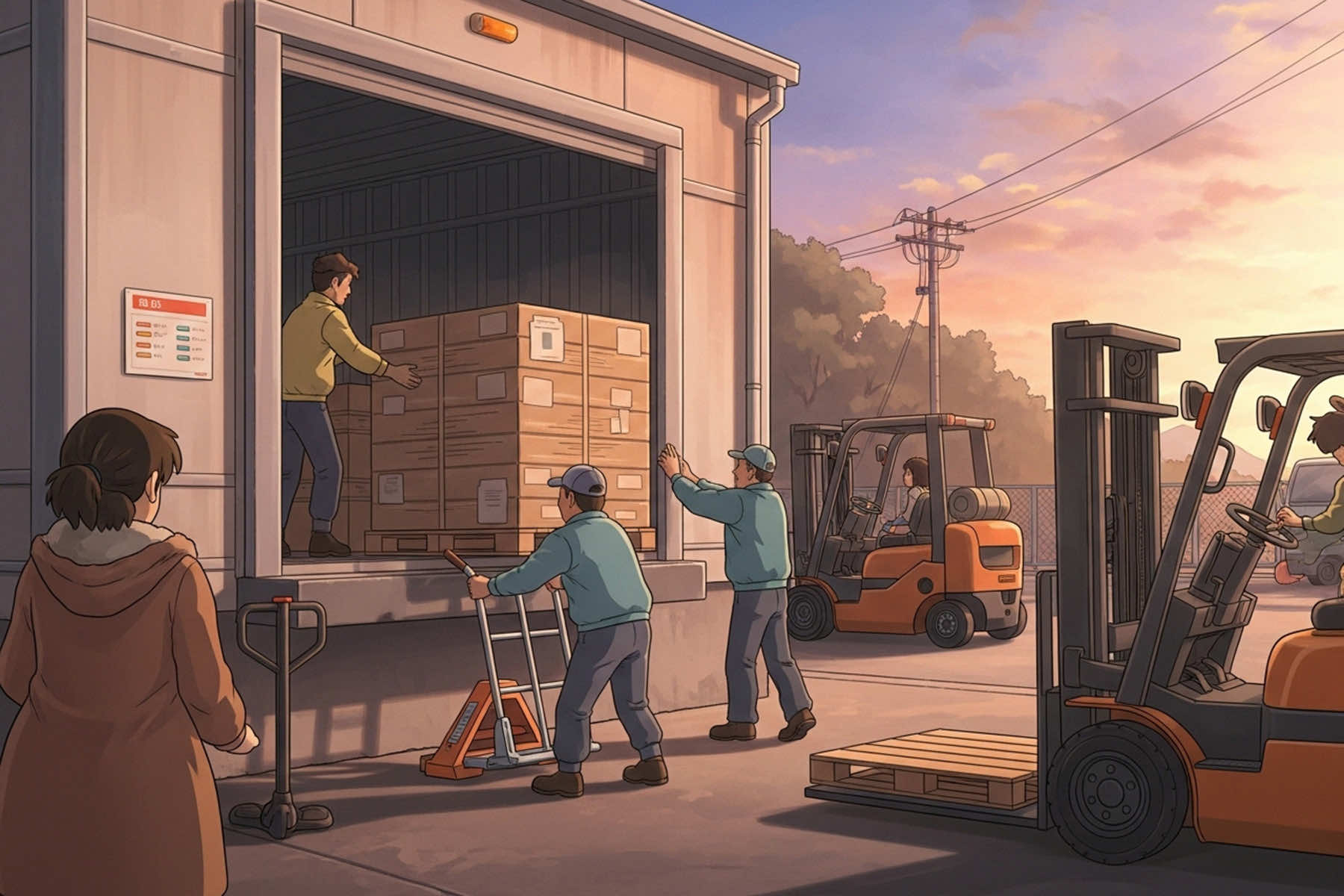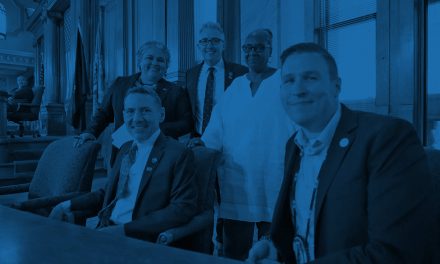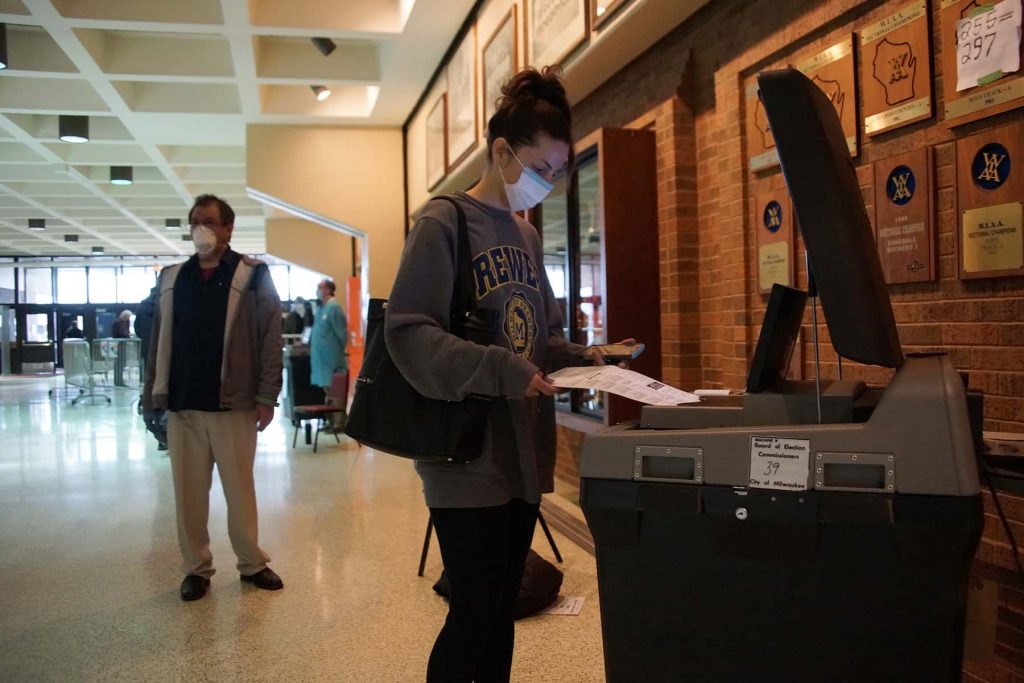
This explainer series, Catholic Doctrine on Immigration, explores how the teaching of faith and Scriptures intersect with immigration policy, focusing on the role of Milwaukee’s Catholic Church in responding to enforcement, labor dynamics, and family separation. Through detailed reporting across legal, economic, and pastoral contexts by Milwaukee Independent staff members, the series examines how Church teaching shapes institutional action and informs the Church’s engagement on national immigration issues. mkeind.com/catholicimmigration
In Wisconsin’s fields, factories, kitchens, and care homes, undocumented immigrants provide essential labor that rarely enters public conversation. Yet without their contribution, key sectors of the state’s economy would falter.
As federal policy vacillates between punitive enforcement and legislative inaction, the state’s reliance on this invisible workforce remains both unacknowledged and indispensable.
The numbers are striking. According to immigration policy research cited in Wisconsin’s June 2020 fact sheet, undocumented immigrants comprised an estimated 27,000 workers in the state. Many of them fill jobs in sectors marked by high demand and low retention: dairy farms, meat processing, elder care, hospitality, and construction.
These are industries central to Wisconsin’s economy, and they rely on labor that is systematically excluded from legal protections and full civic participation.
In Milwaukee County, where a significant share of the immigrant population is concentrated, the dependency is even more pronounced. Service-sector jobs, especially in food preparation and custodial work, have grown in tandem with immigrant labor participation.
Yet few policy discussions acknowledge this reality. Instead, the public narrative frames immigration in terms of border control or public cost, ignoring the economic benefit extracted daily from undocumented residents.
The economic integration of these workers contrasts sharply with their legal vulnerability. Most undocumented immigrants in Wisconsin have lived in the U.S. for a decade or more. They have children enrolled in local schools, pay taxes through ITINs or payroll withholding, and participate in the consumer economy.
Despite this, they remain excluded from labor protections, face heightened risks of wage theft, and have no access to federal relief programs. The contradiction is structural: the state reaps economic gains from undocumented labor while federal law criminalizes their presence.
The Archdiocese of Milwaukee has acknowledged this paradox in its public statements and internal programming. In partnership with local agencies, it has supported employment resource fairs, legal aid referrals, and worker advocacy training for undocumented parishioners. These efforts underscore the institutional recognition that undocumented immigrants are not temporary or marginal, but foundational to community stability and economic health.
At the state level, policy responses remain fragmented. Wisconsin has no comprehensive state-level protections for undocumented workers, nor does it offer driving privileges or in-state tuition to undocumented residents.
As a result, many immigrants must navigate daily life without the tools necessary for legal and economic stability. This legal vacuum exacerbates exploitation and deepens economic inequity. And not just for undocumented individuals, but for entire families who depend on their income.
Despite their marginal legal status, undocumented immigrants contribute significantly to state and local revenues. Estimates from economic policy groups indicate they pay millions annually in property, income, and sales taxes. These funds support schools, infrastructure, and emergency services, yet the workers themselves remain ineligible for the benefits their labor sustains.
While politicians debate immigration at the national level, local economies experience the consequences of federal dysfunction.
In Wisconsin, the absence of reform has not slowed economic demand. Employers in sectors like agriculture and elder care continue to depend on a labor pool they are not legally permitted to support. This creates an unspoken system of mutual dependence: employers rely on undocumented workers to fill jobs that citizens often decline, while workers depend on informal networks and temporary reprieves to maintain their livelihoods.
This fragile arrangement becomes untenable during periods of enforcement escalation. In past years, I-9 audits and immigration raids in Wisconsin have disrupted businesses and driven undocumented workers deeper into the shadows.
The uncertainty undermines workplace safety and deters workers from reporting violations. It also exposes employers to legal penalties, creating a climate of fear that harms both sides of the labor equation.
Milwaukee has witnessed these dynamics firsthand. Faith-based and advocacy organizations report that immigrant workers frequently face wage theft, unsafe conditions, and harassment. Yet most are unwilling to report abuses due to fear of deportation.
In response, some parishes and community centers have hosted labor rights workshops aimed at informing workers of their limited but crucial protections under state and federal labor laws. These sessions underscore a basic truth. Even those without legal status are entitled to dignity and safety at work. It is a message rooted in both civic values and moral teaching.
The invisibility of undocumented labor creates a distorted picture of the state economy. Public data often underestimates immigrant participation because many workers are paid off the books or operate under borrowed identities. As a result, the scale of their contribution remains poorly understood, even though their absence would be felt immediately if they were removed.
Sectors like dairy farming, which is essential to Wisconsin’s identity and economic output, have already voiced concern that labor shortages threaten their viability. The immigrant workforce is not a footnote — it is a structural pillar.
Despite this reality, undocumented workers remain outside the legal framework that governs economic participation. They cannot apply for business licenses, access unemployment benefits, or secure formal employment without risk. And while Deferred Action for Childhood Arrivals (DACA) once offered limited protection for a subset of this population, it remains a narrow and unstable solution.
The broader undocumented workforce has no path forward unless Congress enacts comprehensive reform — a prospect that continues to stall in partisan deadlock. In the absence of federal action, the burden falls on local communities to mitigate harm.
Milwaukee’s response has included pastoral care, emergency assistance, and localized advocacy. But these interventions cannot substitute for policy. As long as undocumented immigrants remain economically necessary but legally disposable, Wisconsin’s labor system will remain out of alignment with its moral and economic realities.
The silent economy is not silent because it lacks value. It is silent because it lacks legal recognition. Until that changes, the state will continue to rely on an invisible workforce to sustain its public life, while denying that workforce the rights and protections it deserves.














